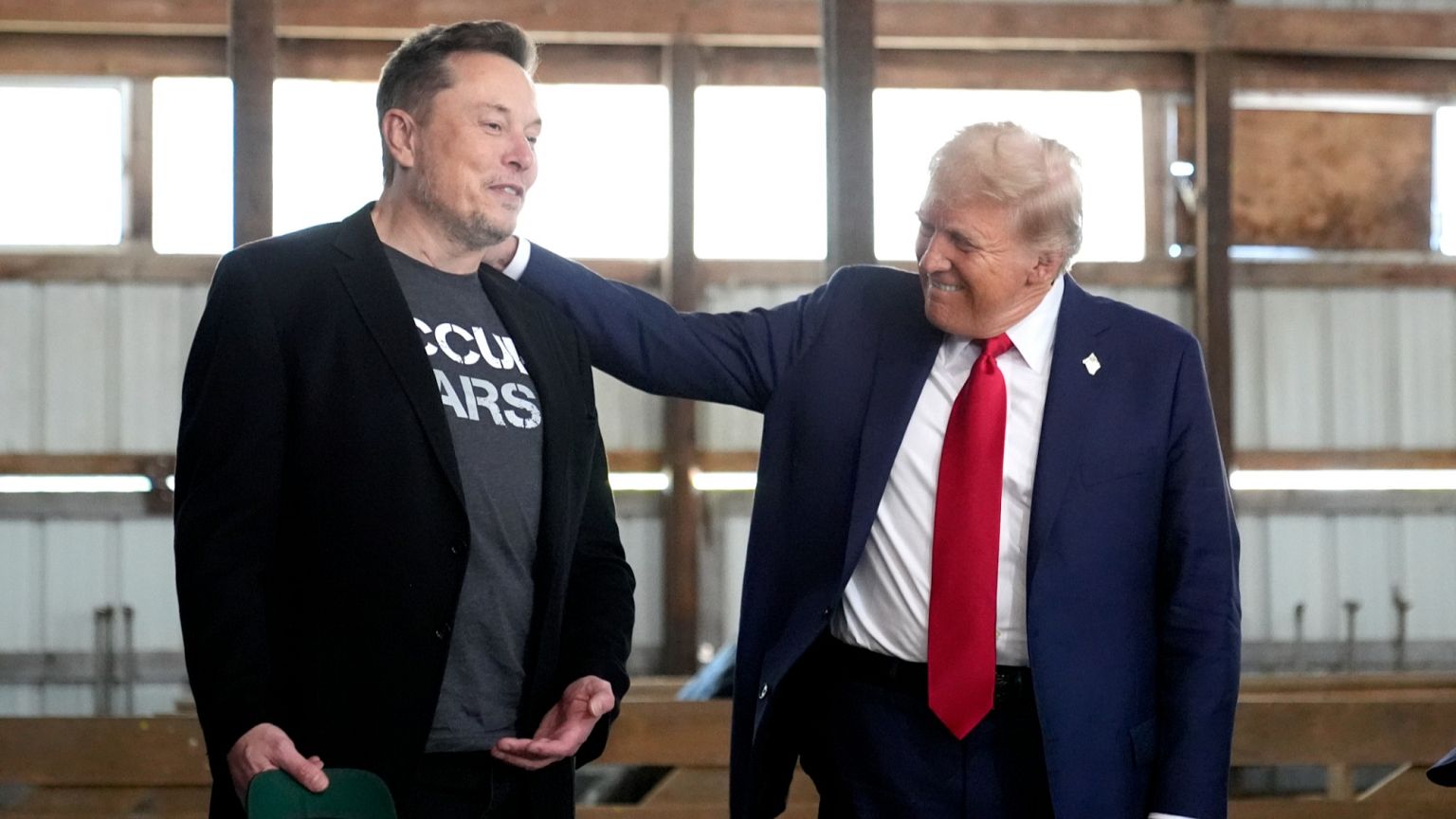
Elon Musk's decision to team up with President Donald Trump has had a devastating impact on his financial empire, resulting in a staggering loss of $113 billion, representing a 25% drop in his personal wealth. Musk's fortune, which stood at $452 billion at the beginning of 2023, has tumbled to $339 billion as of April, according to the Bloomberg Billionaires Index.
This sharp decline comes after the billionaire entrepreneur took on a special government employee role earlier this year, leveraging his Silicon Valley influence to gain unprecedented access to the corridors of power in Washington. What followed has been a series of high-profile missteps and political alliances that have cost Musk dearly, not just in terms of public approval, but in his financial holdings as well.
Musk's venture into Washington began with much fanfare. Joining Trump’s meetings with foreign leaders and Cabinet Secretaries, Musk became the public face of the administration's efforts to slash government waste and disrupt the status quo. His involvement with the Trump administration was marketed as a way to bring Silicon Valley's business acumen to Washington.

Musk, known for his work with Tesla, SpaceX, and Neuralink, was touted as the man who could eliminate wasteful government spending, an initiative that would supposedly save up to $2 trillion.
But in reality, Musk’s ambitious goals have faltered, with DOGE (the initiative Musk led) claiming only $160 billion in savings, a far cry from the lofty $2 trillion target. This failure to deliver has contributed to Musk’s tarnished public image, especially as the American public began to associate him with government inefficiency.
According to a Washington Post-ABC News-Ipsos poll, 57% of Americans disapprove of Musk's work in Washington, a significant increase from the 49% disapproval rating in February.
Among Musk's businesses, it is Tesla that has borne the brunt of the fallout from his political entanglements. Tesla’s stock has plunged by 33% since the inauguration of President Trump, with the company's sales also seeing a sharp decline. Musk’s distraction with government work and his increasing visibility as a political figure have alienated investors, and his absence from the day-to-day operations of Tesla has been met with increasing frustration from shareholders.
Tesla’s struggles have been compounded by a series of protests and acts of vandalism at Tesla locations, with the iconic Cybertruck – a symbol of Musk’s vision for the future – becoming a particular target of criticism. The company's woes culminated in a dismal quarterly report, forcing Musk to publicly acknowledge that his political ventures had taken a toll on Tesla.
“There’s been some blowback for the time that I’ve been spending in government,” Musk admitted during Tesla’s earnings call, signaling his intention to step back from his political role and refocus on his companies. "Starting in May, my time allocation to DOGE will drop significantly."

While Tesla has suffered, SpaceX and Musk’s AI company XAI have enjoyed significant political gains. SpaceX, long accustomed to securing lucrative government contracts, has seen a boost in its dealings with President Trump’s administration. The Department of Defense awarded SpaceX a $5.9 billion contract to launch intelligence satellites into orbit, and Musk’s influence helped secure Republican backing for SpaceX’s involvement in a $42 billion effort to expand broadband access to rural America.
Furthermore, SpaceX’s close relationship with the Pentagon has been advantageous, as Musk continues to deploy SpaceX engineers across the U.S. airspace system, even pressuring federal officials to comply with his plans.
Musk’s other company, X (formerly Twitter), also reaped rewards from his relationship with Trump. After acquiring Twitter, Musk quickly worked to reverse the social media platform’s ban on Trump, a move that earned him favor with the president. Trump’s endorsement helped Musk revive X’s flagging fortunes, and the platform is now on track for its first year of revenue growth since 2021.
Musk’s ability to navigate the political landscape, using his influence with Trump to attract advertisers and revive investor confidence, has allowed X to flourish despite the controversies surrounding its acquisition.

Despite the business successes of SpaceX and X, Musk's political alliances have led to increasing public dissatisfaction. In particular, his involvement in the 2023 Wisconsin Supreme Court race became a lightning rod for criticism. Musk spent $20 million supporting the Republican candidate, who lost by a significant margin, prompting some to question his judgment and influence.
Former Trump strategist Steve Bannon labeled the loss a “wake-up call,” underscoring the growing perception that Musk has become a target for political opposition.
Musk also found himself at odds with Trump’s policies, particularly when it came to trade. His vocal criticism of Trump’s tariffs, which he argued were harming Tesla’s bottom line, led to a public feud with Trump’s trade advisor, Peter Navarro. The rift over tariffs served to highlight the challenges Musk faced as he tried to navigate the intricacies of Washington politics while managing his business empire.
Musk’s comments on tariffs, alongside his attempts to convince Trump to reconsider certain policies, reflected his growing frustration with the Trump administration.

As Musk began to shift away from his political role in Washington, he left the door open for continued involvement with Trump’s administration. “I’ll have to continue doing it for, I think, probably the remainder of the president’s term, just to make sure that the waste and fraud that we stopped does not come roaring back,” Musk said during a Tesla earnings call. However, even as he made this pledge, Trump was already signaling that Musk’s role with the administration was coming to an end.
Musk’s financial setbacks, combined with his increasingly unpopular political affiliations, have left many questioning whether his ambitious ventures in Washington were worth the cost. As his wealth continues to dwindle, Musk faces a pivotal moment: will he retreat from politics and focus on his businesses, or will he continue to act as a political influence, despite the mounting backlash?
In the meantime, investors and analysts are urging Musk to re-focus on Tesla, the company that made him a household name. The $448.3 billion lost in market value since January 17 is more than double the savings claimed by DOGE, signaling just how costly Musk’s political distractions have been for his flagship company.
Whether Musk will heed these calls remains to be seen, but one thing is certain: his brief but tumultuous political career has had lasting consequences, both for his businesses and his personal fortune.



-1750241891-q80.webp)
-1751966934-q80.webp)